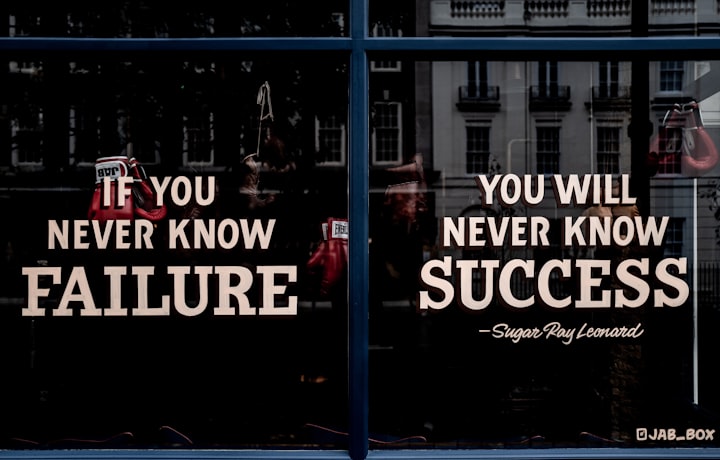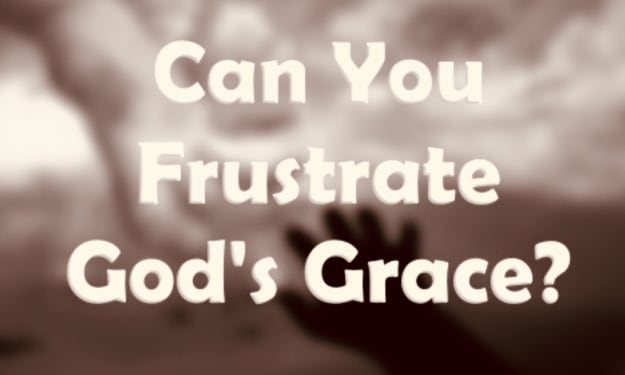Free Yourself With Forgiveness
"Our sorrows and wounds are only healed when we touch them with compassion."

"Our sorrows and wounds are only healed when we touch them with compassion."
What would it be like if you felt free from the past? Is it possible to let go of that anger, resentment, and hurt we all have from our life experiences?
In my past, I have lost touch with many people who were very important parts of my life; they have either passed away or we just weren't good for each other anymore. I have felt the pain of losing them, missing them. But if I could talk with any of them at this moment - the only thing that I would be compelled to say is "I still love you, still care about you, and I hope you've found some peace and happiness wherever you may be."
The longer I sit here and loop this imaginary scene in my mind, it's as if a weight has been lifted from my heart. I actually feel one small step closer to being free from the past. Is this the power of forgiveness? If it is, then I think we might want to take a harder look at understanding what forgiveness actually is and what it might mean for us all.
So, here are a few of my thoughts that I hope will shine a little light on the subject of forgiveness:
1. Why do we think forgiveness must be between two sides coming together?
"Always forgive your enemies; nothing annoys them so much."
Many times, we feel like forgiveness depends on someone apologizing or one side being the "bigger person" by letting it go and excusing things that still feel wrong. But if forgiveness requires both sides to come together and agree, it is much more like a shrewd business or political deal, which has regulations on how and when it should happen. How can we forgive if we are worried about whether we are doing it right or not?
The kind of forgiveness I wish to highlight in this blog post is not one with rules on how to forgive, but the type that helps us break free from allowing our negative feelings to linger and dominate over how we feel and live our life.
For example, let's say one day you discover your lunch is missing from the shared fridge at work. No one would believe that is something you should ignore and immediately feel okay with what happened. Whether it was an honest mistake or maliciously calculated, either way, your lunch is gone and that is wrong.
We may never know who took that lunch but we can still forgive. Forgiveness is not dependent on both sides coming together. But if we overlook the power of forgiveness when dealing with bad things happening to good people, our negative emotions of sadness, frustration, or anger will have much greater control over our actions in the future. We might start labeling our lunches twice, buying a lock for our lunch bag, or installing a surveillance camera in the break room. We might even be more suspicious of our co-workers and act differently around them.
But whether we choose to do something or not, it's a personal decision on how you feel about what has happened in the past. When forgiving yourself or someone else, forgiveness can only really come from within ourselves. No one else needs to be there or agree for forgiveness to happen.
2. Forgiveness is for you, not for them.
"Being upset with someone is like taking poison, hoping that the person who upset you is going to suffer… If you hold a grudge against someone, the only one who is suffering is you."
Forgiveness is not something that we do for others; it's something we do for ourselves. One often-practiced technique that backs up this idea, is the process of writing down your thoughts in a letter but never sending it to that person. If the offending person never sees it, the process of working through your emotions to find forgiveness is really for you and for you alone.
This may be why we find forgiveness so difficult since we often forget or are unaware of why we are trying to forgive in the first place. But when we realize it is more for our own well-being, we may be able to forgive and let go of the negative emotions hurting us.
If you are struggling to forgive anyone, even yourself, I encourage you to explore your feelings about what happened and how it has impacted you so far. Some things might be too painful to process right away, but the more you focus on practicing forgiveness, the more you will begin to feel its positive effects.
3. The long path to forgiveness - Anger vs. Sadness
"It's easy to judge. It's more difficult to understand. Understanding requires compassion, patience, and a willingness to believe that good hearts sometimes choose poor methods. Through judging, we separate. Through understanding, we grow."
Forgiveness is a difficult thing to do. It often requires time and effort, so forgiveness may not be possible for long periods of your life - but I believe it is a necessary step for a happier and more peaceful life. So it should not be something that is disregarded, but something that we work towards over time.
One way you can tell how close you are to forgiveness is whether you react mainly out of anger or out of sadness. The angrier you are about something, the less you are ready to forgive. When the anger fades, usually sadness replaces it and we can move closer to forgiving. The sadder you are about the same thing, the closer you are to forgiveness.
As we work on getting closer to forgiveness, an important thing to remember is to not completely ignore or avoid either of these negative emotions. We all have anger and sadness, and there is no shame in mourning or ranting when the moment is right and no harm is done to yourself or another. But wallowing in anger or sadness for too long can cause even more pain, so it's best to get to forgiveness sooner rather than later. As a close friend of mine once put it: "To forgive is not to forget. It is to remember with an open heart."
Conclusion - Remember to forgive yourself
"You forgive yourself for every failure because you are trying to do the right thing. God knows that and you know it. Nobody else may know it."
Forgiveness is a powerful tool that can help you live a more fulfilling life. If forgiving others doesn't work for you, try forgiving yourself instead. No one knows you better than yourself, so the only person capable of giving full forgiveness to you is actually yourself. And if we can't forgive ourselves, we will never be able to forgive someone else.
As you search for the courage to forgive, remember that forgiveness is not a process between two sides coming together. It is about releasing yourself from the chains of anger and sadness, in order to break free from some of the pain in the past. The long path towards forgiving someone who has wronged you may be an arduous one, but it will ultimately take you closer to a more peaceful state of mind.
About the Creator
BK Johnsen
Author of 𝐵𝑒𝑓𝑜𝑟𝑒 𝑌𝑜𝑢 𝐹𝑎𝑙𝑙 & 𝘓𝘢𝘥𝘺 𝘰𝘧 𝘵𝘩𝘦 𝘜𝘯𝘥𝘦𝘳𝘸𝘰𝘳𝘭𝘥. A philosophizer, podcaster, karaoke-enthusiast, & Jedi. Born in Seattle, I now live in Japan with my wife, working on keeping my own Pride in check.






Comments
There are no comments for this story
Be the first to respond and start the conversation.